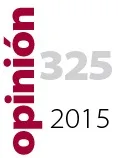A very European Election (against all odds)

Pol Morillas, Research Fellow CIDOB
May 05, 2015 / Opinión CIDOB, n.º 325
Next Thursday’s election will probably be the most contested one that the UK has ever had. The outcome of the vote will turn the UK’s political system into one similar to its continental neighbours. The two big parties, Conservatives and Labour, will lose seats. This will benefit smaller parties, and will force either a minority government or a coalition rule.
The fragmentation of the political system–though still with the check of a winner-takes-all electoral system–will bring UK politics closer to European politics: both as a consequence of the fragmentation of the vote (the latest polls predict a draw between the Conservative and Labour parties, with the SNP obtaining remarkable results and Libdems, the Greens and UKIP also challenging a two-party system) and the likelihood of post-electoral negotiations to secure government (with a hung parliament, Libdems, Greens and the SNP are likely to play a key role in coalition formation). All in all, a Europeanisation of British politics is taking place.
Yet this will happen at a time when a Brussels-reluctant Britain drifts away from the European Union. The fate of Europe and the UK’s membership has not been a major issue in the electoral campaign. Only Tony Blair made a starring appearance to defend the UK’s permanence in Europe – troubling some fellow Labour en passant . But when British citizens were asked about their preferences when casting their votes, they tended to put the economy, health and immigration at the top of the list (all with around 50% of responses when asked about the most important issue facing the UK in this election). Europe scored close to 10% on average, despite a surge up to 20% in the latest polls.
Europe, however, looms large in many issues of the campaign. This comes partly as a consequence of David Cameron’s promise to hold a nationwide referendum on Britain’s EU membership before the end of 2017 if he wins Thursday’s election. However, since he announced the referendum two years ago, Cameron has not been able to make much progress in its planning and definition due to a government coalition with the Libdems.
Euro-sceptics have also used the EU as a scapegoat, portraying an “independent” UK as more able to restrict immigration and to spend the contribution to the EU budget in national recovery and growth instead. The link between populism and anti-Europeanism has been reinforced, despite the fact that Europe’s influence on immigration to Britain and the British economy favour EU membership. Recent studies show that EU migrants pay the state 34% more than they take out and that EU membership has enabled a 55% growth in goods trade. Other studies also demonstrate that Brexit would endanger the wellbeing of Britain’s poorer regions and that the consequences for the City of London would be equally harmful, with some banks shifting their largest activities to EU territory.
Even if the topic of Europe has been absent during the campaign, it is highly possible that it will be high in the agenda soon after the elections. If the Conservatives get a landslide victory (something unlikely), they will certainly move on with the promise to renegotiate the UK’s relationship with Europe and hold the in-or-out referendum while presenting a list of demands for European reform. If the Conservatives need support, the Libdems – were they to decide to join a Conservative-led coalition - would put pressure on Cameron not to see them trapped into the European question again.
If Labour wins, pressure will increase to clarify Ed Miliband’s promise to hold a referendum “if more powers are transferred to the EU” and the kind of reforms he is asking for. It is also likely that Conservatives in opposition would harden their tone vis-à-vis a Labour-led government, with the Eurosceptic wing of the party becoming more vociferous. And if the SNP holds the key to power, they might make use of the EU question to force a Scottish say on the future of Britain (would the UK decide to leave the EU). In addition, all parties will have to debate whether EU membership is part of a bigger argument over the UK’s waning influence on the world stage, as shown by the weakening of the “special relationship” with the US or the limited influence over the recent crises in Ukraine, the Middle East and Africa.
Europe will also pay close attention to the UK after 7 th May. Many argue that the EU will do its best to keep the UK in. Soon after the elections, the European Council will Council will ask the new Premier to present the list of requested reforms, no matter if they come accompanied by a referendum or not. EU leaders, however, particularly Angela Merkel, would feel anxious if such reforms require a Treaty change, since most attention will remain focused on the euro-crisis and Grexit. So even if no EU leader wants to be remembered as the one who broke the EU apart, preventing a Grexit or Brexit will not necessarily be the only priority. Two things look certain for the months following the UK general election: the danger of EU disintegration will loom large no matter who wins the election and the debate over the UK’s membership will continue to permeate British politics.
E-ISSN: 2014-0843